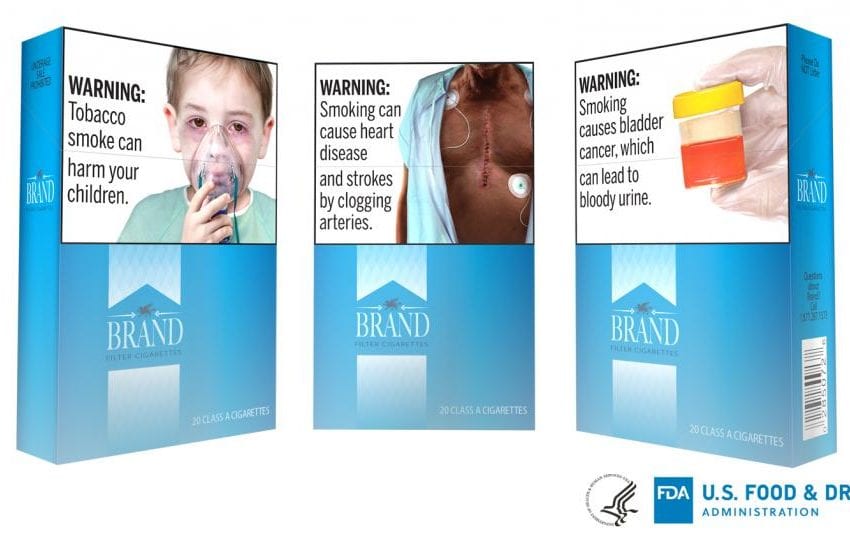 The U.S. Food and Drug Administration (FDA) has issued a proposed rule to require new health warnings on cigarette packages and in advertisements to promote greater public understanding of the negative health consequences of smoking.
The U.S. Food and Drug Administration (FDA) has issued a proposed rule to require new health warnings on cigarette packages and in advertisements to promote greater public understanding of the negative health consequences of smoking.
The proposed warnings, which feature photo-realistic color images depicting some of the lesser-known, but serious health risks of cigarette smoking, stand to represent the most significant change to cigarette labels in more than 35 years.
The new cigarette health warnings, once finalized, would appear prominently on cigarette packages and in advertisements, occupying the top 50 percent of the area of the front and rear panels of cigarette packages and at least 20 percent of the area at the top of cigarette advertisements. The warnings would be required to appear on packages and in advertisements 15 months after a final rule is issued.
“As a cancer doctor and researcher, I am well aware of the staggering toll inflicted on the public health by tobacco products, which cause cancer, heart disease, stroke, emphysema and other medical problems,” said Acting FDA Commissioner Ned Sharpless.
“While most people assume the public knows all they need to understand about the harms of cigarette smoking, there’s a surprising number of lesser-known risks that both youth and adult smokers and nonsmokers may simply not be aware of, such as bladder cancer, diabetes and conditions that can cause blindness
“With these new proposed cigarette health warnings, we have an enormous public health opportunity to fulfill our statutory mandate and increase the public’s understanding of the full scope of serious negative health consequences of cigarette smoking.
“Given that tobacco use is still the leading cause of preventable disease and death in the U.S., there’s a lot at stake to ensure the public understands these risks. We remain committed to educating the public, especially America’s youth, about the dangers associated with using cigarettes and other tobacco products.”
The proposed new warnings, each comprising a text statement and corresponding photo-realistic image in full color, include:
- WARNING: Tobacco smoke can harm your children.
- WARNING: Tobacco smoke causes fatal lung disease in nonsmokers.
- WARNING: Smoking causes head and neck cancer.
- WARNING: Smoking causes bladder cancer, which can lead to bloody urine.
- WARNING: Smoking during pregnancy stunts fetal growth.
- WARNING: Smoking can cause heart disease and strokes by clogging arteries.
- WARNING: Smoking causes COPD, a lung disease that can be fatal. (paired with two different images)
- WARNING: Smoking reduces blood flow, which can cause erectile dysfunction.
- WARNING: Smoking reduces blood flow to the limbs, which can require amputation.
- WARNING: Smoking causes type 2 diabetes, which raises blood sugar.
- WARNING: Smoking causes age-related macular degeneration, which can lead to blindness.
- WARNING: Smoking causes cataracts, which can lead to blindness.










